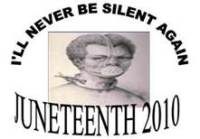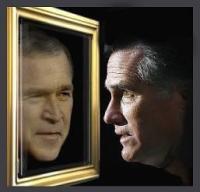Today would have been the birthday of Lena Horne known to her peers as "The Horne". The electrifying beauty and uncompromising performer who shattered racial boundaries by changing the way Hollywood presented black women for six-decades through a singing career on stage, television and in films was the model of black womanhood.
She is best described in her own words saying “my identity was clear because I no longer have to be a 'credit,' I don't have to be a 'symbol' to anybody. I don't have to be a 'first' to anybody. I don't have to be an imitation of a white woman that Hollywood sort of hoped I'd become. I'm me, and I'm like nobody else.”
Lena Mary Calhoun Horne was born June 30, 1917, in Brooklyn, N.Y. Her father was a civil servant and gambler who largely abandoned the family, although Ms. Horne reconnected with him in the late 1930’s. Her mother, an actress, was largely absent from Ms. Horne's early life because of work on the black theater circuit. Shifted at first among friends and relatives, Ms. Horne was raised mostly by her maternal grandmother, a stern social worker and suffragette in Bedford-Stuyvesant, then a middle-class Brooklyn neighborhood. Ms. Horne said she was influenced by her grandmother's "polite ferocity."
In 1933, when she was 16, Ms. Horne was reunited with her mother and new stepfather, a white Cuban. It was the peak of the Depression, and they lived on relief in Harlem. Ms. Horne was pushed into a job at the Cotton Club by her mother, who knew the Harlem nightclub's choreographer. The segregated club attracted white clientele who liked to watch the top black entertainers of the day, such as Duke Ellington and Cab Calloway, surrounded by what was promoted as a "tall, tan and terrific" chorus of girls.
The Horne, as she was endearing called because of her striking beauty and voice, was considered one of the most beautiful women in the world came to the attention of Hollywood in 1942. She was the first black woman to sign a meaningful long-term contract with a major studio, a contract that said she would never have to play a maid. This single act transformed the image of the African American woman in Hollywood. As film historian Donald Bogle said, "Movies are a powerful medium and always depicted African American women before Lena Horne as hefty, mammy-like maids who were ditzy and giggling… Lena Horne becomes the first one the studios begin to look at differently... Really just by being there, being composed and onscreen with her dignity intact paved the way for a new day" for black actresses.
In Hollywood, Ms. Horne received previously unheard-of star treatment for a black actor. Her reputation in Hollywood rested on a handful of classic musical films. Among the best were two all-black musicals from 1943: "Cabin in the Sky," as a small-town temptress who pursues Eddie "Rochester" Anderson; and "Stormy Weather," in which she played a career-obsessed singer opposite Bill "Bojangles" Robinson. She shared billing with hugely famous white entertainers such as Gene Kelly, Lucille Ball, Mickey Rooney and Red Skelton but was segregated onscreen so producers could clip out her singing when the movies ran in the South. "Mississippi wanted its movies without me," she once told the New York.
Metro Goldwyn Mayer studios featured Ms. Horne in movies and advertisements as glamorously as white beauties including Hedy Lamarr, Rita Hayworth and Betty Grable. James Gavin, who has written a biography of Ms. Horne, said: "Given the horrible restrictions of the time, MGM bent over backward to do everything they could. After MGM, she was an international star, and that made her later career possible, made her a superstar."
Ms. Horne appeared on television and at major concerts halls in New York, London and Paris. She starred on Broadway twice, and her 1981 revue, "Lena Horne: The Lady and Her Music," set the standard for the one-person musical show, reviewers said. The performance also netted her a special Tony Award and two Grammy Awards. She was formidable and the first black cabaret star for white society.
As a songstress her repertoire consisted of sophisticated ballads of Cole Porter, George and Ira Gershwin, Frank Loesser and Billy Strayhorn. She loved the music but also said she liked surprising the white audience who expected black entertainers to sing hot jazz or blues and dance wildly. In her singing, Ms. Horne showed great range and could convincingly shift between jazz, blues and cabaret ballads. New Yorker jazz writer Whitney Balliett praised her "sense of dynamics that allowed her to whisper and wheedle and shout."
She told the New York Times in 1981, "I thought, 'How can I sing about a penthouse in the sky, when with the housing restrictions the way they are, I wouldn't be allowed to rent the place?" In the late 1940’s and 1950’s, she chose to focus on quietly defying segregation policies at upscale hotels in Miami Beach and Las Vegas where she performed. At the time, it was customary for black entertainers to stay in black neighborhoods, but Ms. Horne successfully insisted that she and her musicians be allowed to stay wherever she entertained. One Las Vegas establishment reportedly had its chambermaids burn Ms. Horne's sheets.
In 1963, Ms. Horne appeared at the civil rights March on Washington with Harry Belafonte and Dick Gregory and was part of a group, which included authors James Baldwin and Lorraine Hansberry that met with Attorney General Robert F. Kennedy to urge a more active approach to desegregation. Ms. Horne also used her celebrity to rally front-line civil rights activists in the South and was a fundraiser for civil right groups including the NAACP and the National Council of Negro Women.
Working closely with NAACP Executive Secretary Walter White, Ms. Horne said she wanted to "try to establish a different kind of image for Negro women." They successfully challenged the casting system that had long marginalized black performers onscreen by having them portray servants, minstrels or jungle natives. To Ms. Horne's surprise, her efforts to overcome servile screen parts was resented by many black actors who viewed her as a threat more than a pioneer. She said she was perceived as a danger to the system of informal "captains" in the black acting community who worked as liaisons with film producers when they needed "natives" for the latest Tarzan picture.
After the triumph of her 1981 Broadway show, she led an increasingly isolated life in her Manhattan apartment. Over my lifetime I have seen and known giants who have illuminated the world. None shined brighter then “The Horne”. A life rich in wonder that now belong to the ages. Rest In Peace Ms. Horne as you take your rest among the ghost of the great.































